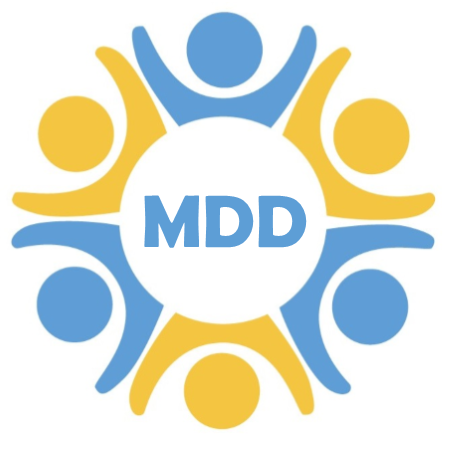Post by: Darra Wray, Founder – My Data Diary, LLC (Originally posted July 26, 2021)

Most people don’t identify themselves as a caregiver. Rather, they think of themselves as a daughter, a son, a parent, a spouse, a grandparent, or a grandchild. The things you do for others and the responsibilities that you shoulder are done out of love and with love. This is definitely how I saw myself until a family medical crisis thrust me into a more formal role with an official name – “Family Caregiver”.
The formal role of family caregiver sneaks up on most people and may only be acknowledged and accepted in the wake of a crisis. The label “Family Caregiver” is likely first uttered by a health professional or social worker wanting to talk with the family member who will accept the primary role in providing the additional care and attention that will be needed to aid in recovery in the wake of a medical crisis. It is often only then that a person acknowledges the very important role that they play for their family.
This was certainly the turning point for me following the unexpected hospitalization of my mother-in-law. Until then, I was simply taking care of my sick mother, caring for my newborn daughter following her extended stay in the special care nursery, assisting my aging parents with tasks around their house, and helping my husband recover from a long illness. But, when faced with this question by a medical professional, I finally realized the critically important role I played in our family, and I wanted to make sure I was doing everything I could to succeed!
Whether you are dealing with the everyday responsibilities of managing your busy family or shouldering the extra challenges of an unexpected medical crisis, below are 3 important next steps that I recommend you take to help set yourself up for success!
Get Organized – Develop a system to keep track of important information and documents. This investment will save you time, money, and frustration. It could even save your life! Make sure you include health information, advance directives, financial information, insurance information, and household information. Be sure to store all of this information in a manner that is secure but accessible.
Ask for Help – Build a care team by asking family and friends to help with household and caregiving responsibilities. Use electronic collaboration tools like family calendars, list makers, and text messaging to streamline communication, coordinate appointments, and simplify household task management. For more complicated care needs, work with your physicians and care managers to develop a formal care plan.
Take Care of Yourself – As the captain of your care team, it is important that you stay at the top of your game. Get enough sleep. Eat well. Attend to your own health needs (including important preventative care). Lean on your own support system. And, importantly, arrange for respite care for your loved ones so you can get away from time to time to recharge your own batteries.
The tasks and responsibilities of the “Family Caregiver” can be exhausting overwhelming, but they can also be amazingly rewarding. So, embrace your role, prepare yourself, and build your team so you can experience the joys and conquer the challenges head on. Go Team!
Darra Wray is a Care Consultant and Certified Senior Advisor in Boise, Idaho. She founded My Care Companions and My Data Diary, LLC to help family caregivers streamline and simplify the business of life.
